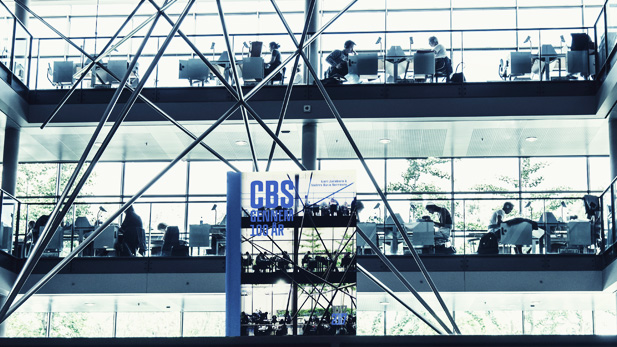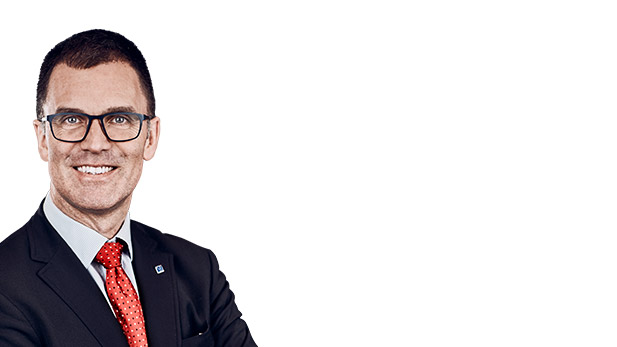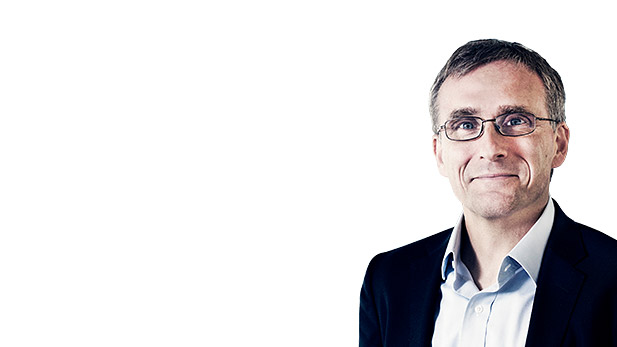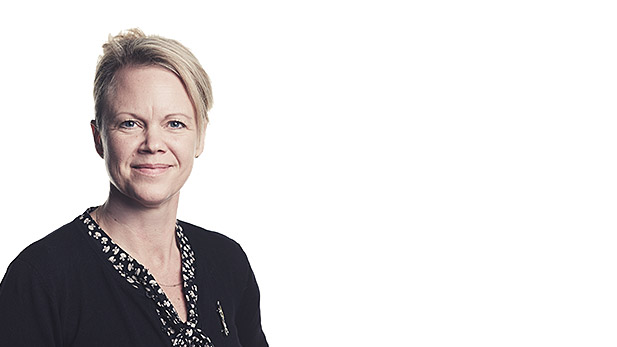Recommended summer reads '17

Almost all of the recommended books can be bought at Academic Books for a discount price for CBS alumni. See more information about the Academic Books discount

Peter Møllgaard, Dean of Research and Professor of Industrial Organization at CBS
Peter Møllgaard is Dean of Research (since 2015) and Professor of Industrial Organization (since 2008) at CBS. As Dean of Research he is responsible for CBS’ scientific personnel in 14 departments – around 750 professors, postdocs, PhD students and support faculty. He is deeply involved in the implementation of CBS’ Business in Society (BiS) strategy, in developing the academic pipeline at CBS, and in external funding of research projects. He has extensive experience with international recruitment of scientific personnel and department heads.
Researching with Integrity: the Ethics of Academic Enquiry by Bruce Macfarlane, 2009
Research integrity is extremely important for the reputation of academic institutions. Following the discussion of fake news and fake knowledge and concrete cases of academic misconduct, universities have to make sure that knowledge is produced ethically and with integrity. But what do these terms actually mean? And how is the responsibility split between the researcher and the university? These themes are taken up in this very topical book by “a Professor of Higher Education who specializes in developing concepts for understanding the ethical dimensions of what it means to be an academic.”
The book argues that the institutional responsibility is often practically exhausted when it comes to the various regulatory frameworks, guidelines and committees, such as CBS Research Practice Committee. The focus of the book is on the responsibility of the individual researcher to behave ethically through all the day-to-day dilemmas that she or he may face during a typical research project from its conception to its conclusion. The author identifies a number of virtues possessed by the excellent researcher: courage, humility, reflexivity, resoluteness, respectfulness, and sincerity. And he illustrates the dilemmas through a number of real-world cases to illustrate the dilemmas and how they may be resolved ethically. In this way, the book provides a positive approach to research integrity rather than one that relies on control. The upshot is that we should not only teach the negative, misconduct connotations of research ethics but also build the positive, virtue-based connotation into our human resource development for academics, starting with the PhD students (or before). Exciting stuff!
CBS Through 100 Years by Kurt Jacobsen and Anders Ravn Sørensen, 2017
A recent article by CBS professor Majken Schultz and professor emerita Mary Jo Hatch of the University of Virginia (“Toward a Theory of Using History Authentically: Historicizing in the Carlsberg Group”, Administrative Science Quarterly, 2017) argues that knowing the history of a company may be an important source of inspiration when you want to re-invent products and revitalize the company. The history may be re-interpreted and used to inspire change. The “always burning” motto of one of the founders of Carlsberg was used to invent a new beer and this led to major changes in the product line and eventually a rethinking of the entire company. In a sense it amounts to taking care of the roots of the company when you wish to make sure that the growth doesn’t wither.
On occasion of CBS’ centenary, two CBS historians that belong to a world-class environment of business history have written an authoritative account of the development of CBS through a century. It also gives a great account of how society and CBS have interacted and it turns out that many of the aspirations, interventions and struggles that we see at today’s business school aren’t as new and original as one might think. We have always struggled to combine relevance and rigor. This is the driving force behind many developments and discussions of CBS as we know it today, but it is interesting to note that this issue has been with us for a hundred years. We have always been underfunded compared to our own aspirations and compared with what society and the business community get in return for the investment in education and research at CBS. And we have always managed to re-invent CBS combining Danish and international approaches to form a unique business university with a distinctive diversity. There is a lot to learn from this book when we re-invent CBS for the next century.
Talk Like TED – The 9 Public Speaking Secrets of the World’s Top Minds by Carmine Gallo, 2014
Speaking publicly with enthusiasm about the project of your life may help you realize that project. And preparing to speak about the stuff you burn for will require you to collect your thoughts and articulate your ideas in crisp messages. Personally, I suggest that you should always be able to deliver a three-minute elevator pitch on the topic that interests you the most presently. And if you get the chance to talk to a larger audience, delivering a TED-like talk in maximum 18 minutes may give you impact beyond the average presentation.
This book goes through some of the best TED talks – and Steve Jobs 2005 Stanford Commencement Address, which is also highly recommended should you not already have watched it. The acronym TED covers Technology, Education, and Design and there are great things to be learned from watching a TED talk in real life or on one of the many videos found on www.ted.com or on YouTube. But isn’t it more fun to deliver a talk like TED than to watch it? If you think so, then Talk Like TED gives you ideas for how to prepare and present talks that may inspire, engage, and persuade your audience. Go talk like TED!

David Lando, Professor in Finance and Research Center Director
David Lando is Professor of Finance at CBS’ Department of Finance and Director of the Center for Financial Frictions – a Center of Excellence supported by a 10-year grant from the Danish National Research Foundations. His research focuses on credit risk modeling, fixed income and fixed income derivatives markets, and on banking and banking regulation. David is also the Vice Chairman of the Board of the Danish Financial Supervisory Authority (Finanstilsynet), visiting scholar at Danmarks Nationalbank and member of CBS’ Board.
Why Nations Fail: The Origins of Power, Prosperity and Poverty by Daron Acemoglu and James A. Robinson. Profile Books, 2012
The essence of the book is that countries fail when economic and political institutions are not ‘inclusive’, meaning, for example, that they restrict political influence to established elites and block innovators from entering the market place. The depth of historical evidence in support of the main thesis is overwhelming. As a bonus, you get an overview of some defining moments in world history. My only complaint about the book is that it is a bit long – I am planning to finish it myself this summer!
The New Lombard Street: How the Fed Became the Dealer of Last Resort by Perry Mehrling. Princeton University Press, 2011
Bagehot’s famous prescription for central banks is to fight financial crises by lending freely but at a high rate of interest. This lender of last resort role was also part of the first stage response to our recent financial crisis, but the principle was extended after the Lehman collapse so that central banks effectively became what Mehrling denotes ‘dealers of last resort’. This book is both an account of how the current system originated and what happened in the whole-sale money markets which is where the crisis really caught fire. He does all of this in 140 beautifully written pages.
Scorecasting: The Hidden Influences Behind How Sports Are Played and Games Are Won. By Tobias Moskowitz and L. Jon Wertheim. Crown Archetype, New York, 2011
You must be into sports, I guess, to really enjoy this book. You must be at least somewhat interested in understanding why there is a home-field advantage, whether players really experience ‘hot hands’ in basketball, and whether calling a time-out before an important play works. The authors give you clear answers to questions like these, but you will also find in this book an entertaining glimpse into how world-class empiricists work and reason with (often big) data. You do not need any math or statistics to read this – just an appreciation for clear writing and coherent thinking. As a bonus you will get a lot of great anecdotes, and chapters that can be read almost independently.

Christina D. Tvarnø, Professor and Study Programme Director
Christina D. Tvarnø is professor at CBS Law Department, study program director for HA(jur) and cand.merc(jur) at CBS and academic co-director at CBS Public-Private. Her main research area is private partnering contracts in the Danish construction industry and Danish contract law.
EU ret. Fri bevægelighed (“EU Law. Free movement” – In Danish), by Ulla Neergaard & Ruth Nielsen, Karnov Group, 2016
The book provides a good update on the latest changes within EU law, the institutions, regulations and rights with a special emphasis on the inner market and the institutional and constitutional development in the EU. The book’s actualisation of the interplay between Danish law, EU law, and the law of nations is especially interesting. There is an exciting new chapter on the economic and monetary union which, in an interesting perspective, examines the goal of social market economy and free trade.
Festskrift til Peter Møgelvang Hansen (“Festschrift to Peter Møgelvang Hansen,” in Danish), by Børge Dahl, Thomas Riis & Jan Trzaskowski, 2016
The book contains numerous different studies within the more general parts of property law, tax law, competition law, law of torts and competition, law of markets, but also more specialised areas such as China’s new patent litigation, digital economy, medical advertising, subleasing, package tours, and legal argumentation and practice of law. The book thus touches upon many interesting and current topics with chapters that can be read in portions, as it is an anthology with contributions from Danish and international researchers and practitioners.
Reformation or Deformation of the EU Public Procurement Rules, by Grith Skovgaard Ølykke & Albert Sanchez-Graells (eds.), Edgar Elgar Publishing, 2016
This book uses an innovative ‘law and political science’ methodology and carries out a critical assessment of the reform of the EU public procurement rules. Hence, it provides the latest scientifical perspective on the policy directions and the spaces for national regulatory decisions in the transposition of the 2014 Public Procurement Package. Furthermore, the book provides analyses on how to interpret the rules in order to make them operational in practice.
Almost all of the recommended books can be bought at Academic Books for a discount price for CBS alumni. See more information about the Academic Books discount



